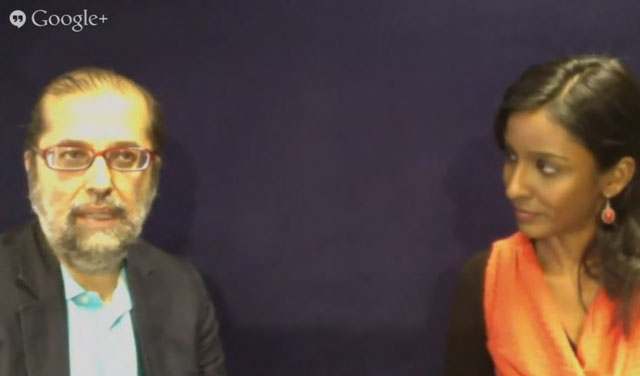
Communications minister Yunus Carrim intends issuing a new policy direction to the Independent Communications Authority of South Africa (Icasa) dealing with the unbundling of Telkom’s local loop of copper-cable infrastructure into homes and businesses.
Speaking on a Google Hangout organised by the Mail & Guardian newspaper on Friday morning, the minister said that he has engaged with experts on local-loop unbundling (LLU) and its implications. He has met with Telkom and Icasa to discuss the issue, he said.
“Within two weeks, we will have a further discussion around what we do.”
The new policy direction on LLU, which will be issued “soon”, will replace the one written by former communications minister Ivy Matsepe-Casaburri in 2007. “Things have moved on since then,” Carrim said. “We think there is a need for a new policy direction in this regard.”
He didn’t say how the new policy direction might differ from the one issued by the late Matsepe-Casaburri, but emphasised he wants Icasa to “feel at ease” about the process.
Earlier this month, Icasa reversed a decision to hold off on publishing draft regulations on LLU so that Carrim could have a chance to review them, informing the minister that it would go ahead and publish the regulations in the Government Gazette. There is no legal requirement for Carrim to review regulations — draft or otherwise — before they are published.
In the Hangout, Carrim referred to a decision by Telkom to contest in court a ruling in 2012 by Icasa’s complaints and compliance committee, which found in favour of the company’s rival, Neotel, which wants access to the incumbent’s telephone exchanges under existing facilities-leasing regulations. Icasa is legally bound to craft LLU regulations following an instruction from the committee.
“Instead of going to court, why can’t we sit around a table, recognising the independence of Icasa and recognising the concerns and needs of Telkom and government’s need to address this matter and the consequences it will have, possibly, in reducing the cost to communicate?” Carrim said. “Why can’t we discuss this while recognising our distinctive niches and not intruding on each other? That’s what we’ll be trying to do over the next six weeks or so.”
However, he warned that whatever decisions are taken, they have to take into account the fact that Telkom is “crucial” to delivering broadband to more South Africans.
“We have to recognise that while Telkom is a publicly listed company — it’s not a state-owned company anymore — it is crucial to the national interests of our country and … we also have to recognise that we can’t just say that Telkom can do what it wants. It has the backbone, the infrastructure, to make possible all the things you and I want. So, we have to tread very carefully. It’s a very sensitive area.”
He added that the issue would not be “resolved easily” given its complexity.
“Personally, I don’t understand the full range of issues involved. I’m making no commitment it’s going to be resolved overnight,” he said. “What I can commit to is that we are going to ask the parties involved to try to settle this reasonably soon. Insofar as our role is concerned in providing policy directions, that will come soon.” — (c) 2013 NewsCentral Media




